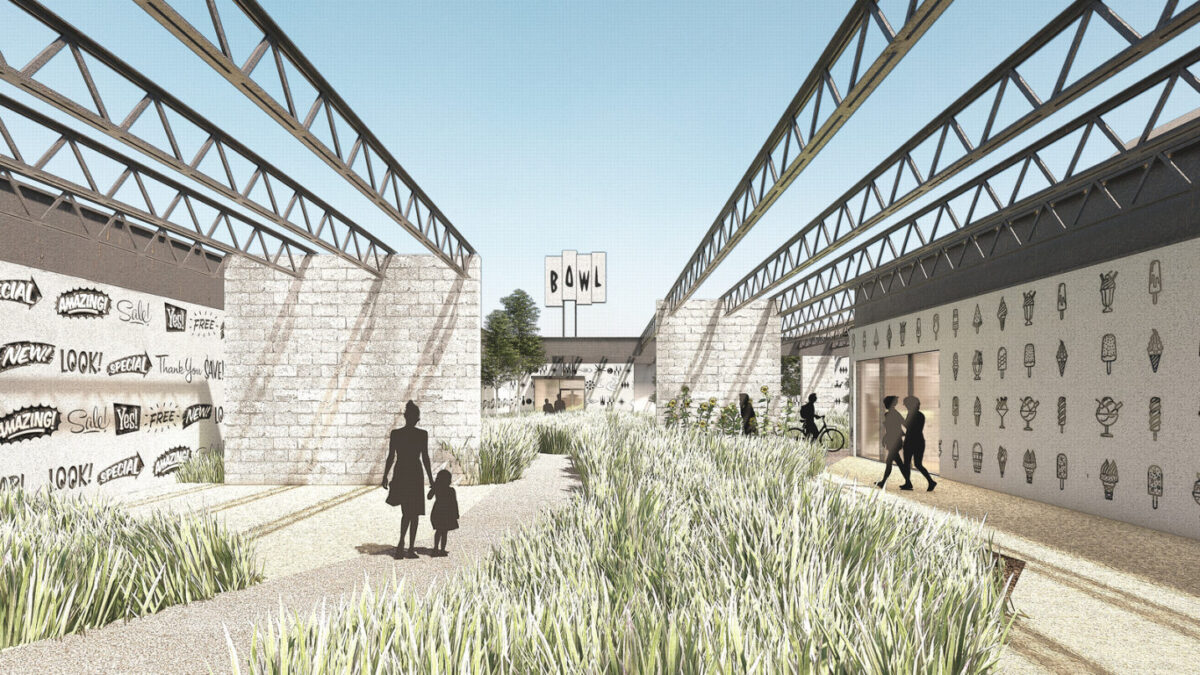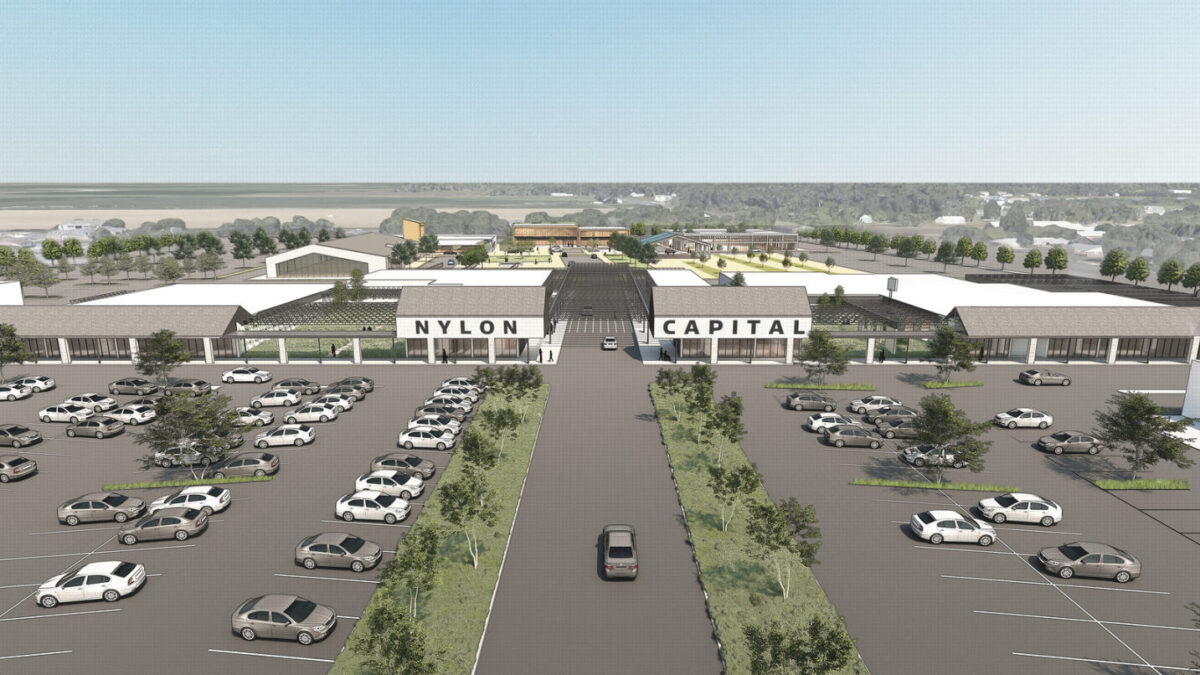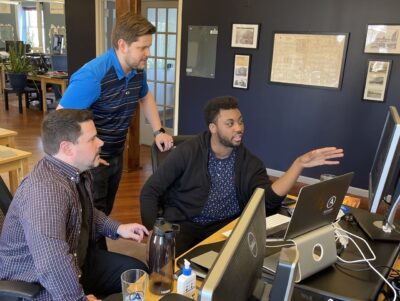
This editorial article is a part of Broadband Connectivity Month of Technical.ly's editorial calendar, underwritten by Verizon. Verizon is a Technical.ly Ecosystem Builder client.
That means more and more residents where people used to be few and far between.
Not many people outside of the area realize the changes are happening, said county resident Xavier Hopkins, who Technical.ly first spoke to in late 2022 for the story “The secret lives of downstate Delaware remote workers.”
“There’s nothing [announcing] that Dover, Camden and all these other towns are becoming less and less farm towns and more suburban towns,” Hopkins said.
The area is often considered a prime retirement destination, drawing retirees from high-tax New Jersey and points in the South that are too far from mid-Atlantic grandchildren. It’s not ideal for commuting, though the hour commute to Wilmington (one way) is far from uncommon.
Even suburbanized, it’s out near the country, twice as close to the beaches as Wilmington — the kind of place that, after improvements in broadband access, seems perfect for a remote worker who wants to build a life away from the city.
Hopkins looks at these developments and wonders how many people there are working remotely in their newly built home office. And how many are staring out the window wistfully, longing for just a little bit of contact with other remote workers.
Since we last talked to Hopkins, an account manager for the New York-based Bucket Listers, and Andrea W., a remote account executive for Impact.com who also lives in central Delaware, not a lot has changed in their day-to-day as remote workers. Networking is tough, and feelings of isolation continue.
But things downstate are changing.
A new hub for remote workers
Forty-five minutes from Dover is another town, western Sussex County’s Seaford. Although it’s surrounded by farmland, the town of about 8,500 people was a 20th century factory hub, home to the world’s first nylon plant after DuPont decided to transform it in 1939. Seaford thrived until the 1980s, and by 2005, the “Nylon Capital of the World” was a shadow of its former self.
Robert Herrera’s The Mill operates two popular coworking and office spaces in Downtown Wilmington and Concord. When the founder decided it was time to expand south, he chose Seaford, with an eye on reinvigorating the town. The newest Mill space — projected to open in early 2025 — was once the Seaford Nylon Shopping Center, complete with a Woolworths and a bowling alley.
The project, a partnership with Wilmington’s 9th Street Development Company, will transform the structure that was once 19,000 square feet of bustling shopping center into a Mill space, including a central courtyard, podcasting booths, communal workspace and other amenities.

A rendering of a courtyard space at the future Mill location in Seaford. (Image courtesy of The Mill)
While it’s too soon to say who most of the future Seaford Mill Seaford members will be, we do know that Delaware Technical Community College will hold a healthcare workforce development development space. And the bowling alley? Due to popular demand after Herrera asked for feedback via the Seaford City Council, the bowling alley will be refurbished as part of the project and will be open to both Mill members and the public.
“There are these huge communities down there, like the Delaware Alliance for Latino Entrepreneurs,” aka ¡DALE!, Herrera said. “I think that’s the perfect demographic because a lot of the story of the Latino community in particular [is that] they came to work in the poultry industry. That first generation didn’t speak English, but that was decades ago now. So the second generation, who I’ve been meeting firsthand through ¡DALE! — which I’m excited to be a part of — they are bilingual. Top of their class, but they don’t have the culture to go to college. So we’re kind of bringing some workforce training to them and I think they could rise to meet the needs of these healthcare jobs, in particular.”
Whether remote workers will flock to the Mill Seaford remains to be seen, but it will have one amenity that holds more value in southwest Sussex County than northern New Castle County: very fast internet. Seaford has few places without some kind of broadband internet access, and those addresses that have been identified as lacking access are receiving upgraded internet infrastructure through the Broadband Equity, Access and Deployment program. But the Mill Seaford will have its own broadband pipeline, so individuals and businesses that need the most formidable internet can access it with their membership.
“That’s a big part of what we’re trying to do,” Herrera said.
Plus, there’s a clear opportunity to form community among remote workers — something those we spoke to were desperate to do.
Social connections in the ‘dead zone’
Back in central Delaware, Hopkins and Andrea W. are happy to learn that The Mill Seaford, as well as CoWork Reho in Rehoboth Beach are filling some of the gaps in Sussex County. But as small as Delaware may be, those locations seem impossibly far.
“It’s almost like, ‘Hey, mind the gap,'” Andrea said. “The dead zone of Delaware falls in between Seaford and Wilmington.”
To be fair, Delaware State University’s main campus and the Dover Air Force Base’s Bedrock Innovation Lab are in Kent County, but neither are meant to be networking spaces for the average area remote worker. That leaves places like coffee and ice cream shops as possible places to connect — if only they can find each other first.
Online, there is the Central Delaware Meetup group that meets the second Friday of the month in Dover, though that is not specifically for remote workers. On the active First State Destinations Facebook group, members reach out in search of social connections in the real world, including remote workers below the C&D Canal.

Timi Bello. (Courtesy photo)
One of those remote workers is Timi Bello, a technical project manager who moved to Delaware for work in 2018 before switching to remote during the pandemic and settling down in Middletown.
“I enjoy working remotely in my town, because of the serenity in the area,” Bello told Technical.ly via email. “It’s quiet, beautiful in the backyard, and overall peaceful.”
Plus, he says, he hasn’t experienced many internet outages, something that can impact remote working conditions in non-urban areas. A high-speed internet plan was a requirement of his employer when transitioning to remote.
Bello cites communication and collaboration issues as the biggest challenges of remote work, but isolation isn’t far behind: “Striking a healthy work-life balance and managing potential feelings of isolation were also aspects that required attention and adjustment,” he said.
Middletown, known as one of the fastest-growing towns in Delaware, has its share of new houses. Like the new developments a half hour away in Dover, they’re likely home to at least some remote workers. Many may like keeping to themselves, but these downstate Delaware communities have untapped potential.
“We might be sitting on a huge ‘if you build it they will come’ opportunity,” Hopkins said. “I moved to Delaware to be quiet and unbothered. However, it doesn’t mean that I don’t want to meet other quiet and unbothered people.”
Before you go...
Please consider supporting Technical.ly to keep our independent journalism strong. Unlike most business-focused media outlets, we don’t have a paywall. Instead, we count on your personal and organizational support.
Join our growing Slack community
Join 5,000 tech professionals and entrepreneurs in our community Slack today!






